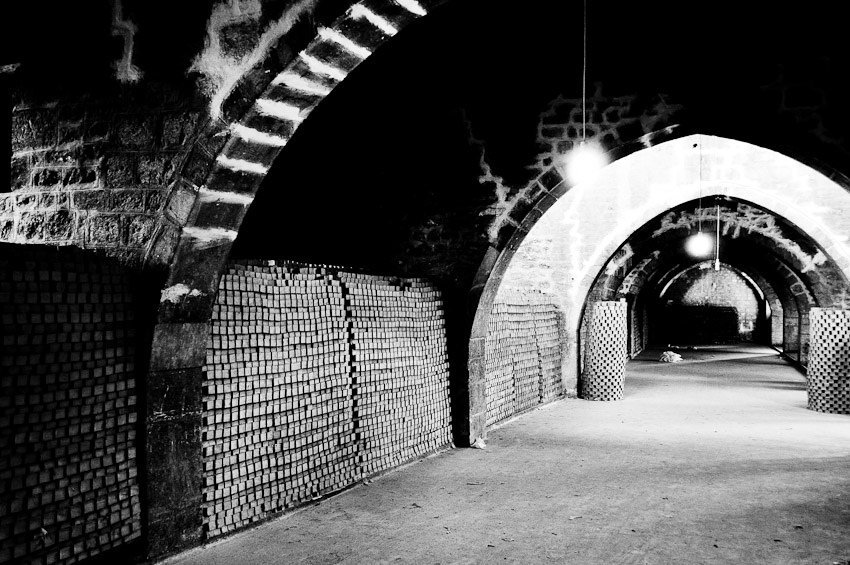Europe owes much to cities like Aleppo. We owe the city for being a storehouse of classical knowledge when much of it disappeared from Europe. We owe it the Old Testament of the King James Bible, thought to be substantially drawn from the Aleppo Codex, a Jewish text that spent eight centuries in the city. On a more mundane level, we all owe something to Aleppo for a product we use every day: soap.
Aleppo soap first became famous in Europe when 12th century crusaders took it back to Europe, where soap manufacturing had fallen into decline along with the Roman Empire. Made of olive oil, lye and laurel oil, its large dull green bars promise hygiene, soft skin, even cures for eczema, psoriasis and other ailments. Its manufacture has changed little over the centuries. Olive oil is boiled for three days with lye until it forms a thick green liquid soap. Laurel oil extracted from the fruit is mixed in and the liquid is poured onto wax paper to set.
While it cools and hardens, soap makers press a logo into the soap, affirming its origins in the city. Before the war the five main families who dominate the trade exported 600 tonnes a year, mostly to Europe and Japan. There used to be about 45 other smaller factories across the city and province. Now the conflict has cut the city off from its markets. Syria had done a poor job of supporting the growing of laurel trees, also known as bay trees, and some 80 percent of the oil used by soapmakers in recent years was imported from Turkey. Even before the conflict, fakers of Aleppo soap had started to threaten the manufacturers, undercutting their prices with artificial products.
Aleppo soap is one of the oldest manufactured products still being made in the same way after thousands of years. And there is no doubt that it delivers on some of its promises. Recent scientific studies have shown laurel oil to have powerful antibiotic and antifungal effects as well as moisturising the skin with vitamins A and D.
You can buy Aleppo Soap on Scent of Syria, ebay and Amazon
 The Aleppo Project
The Aleppo Project